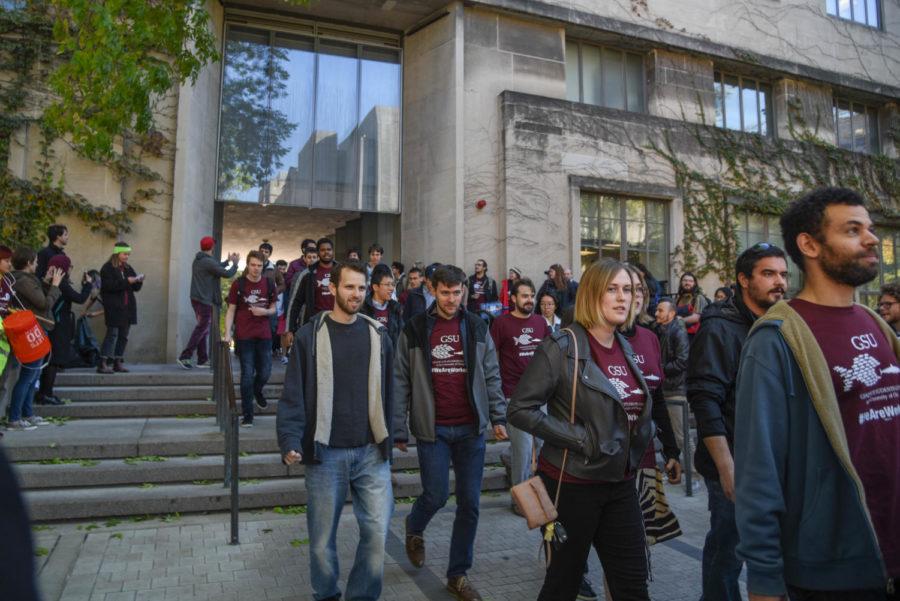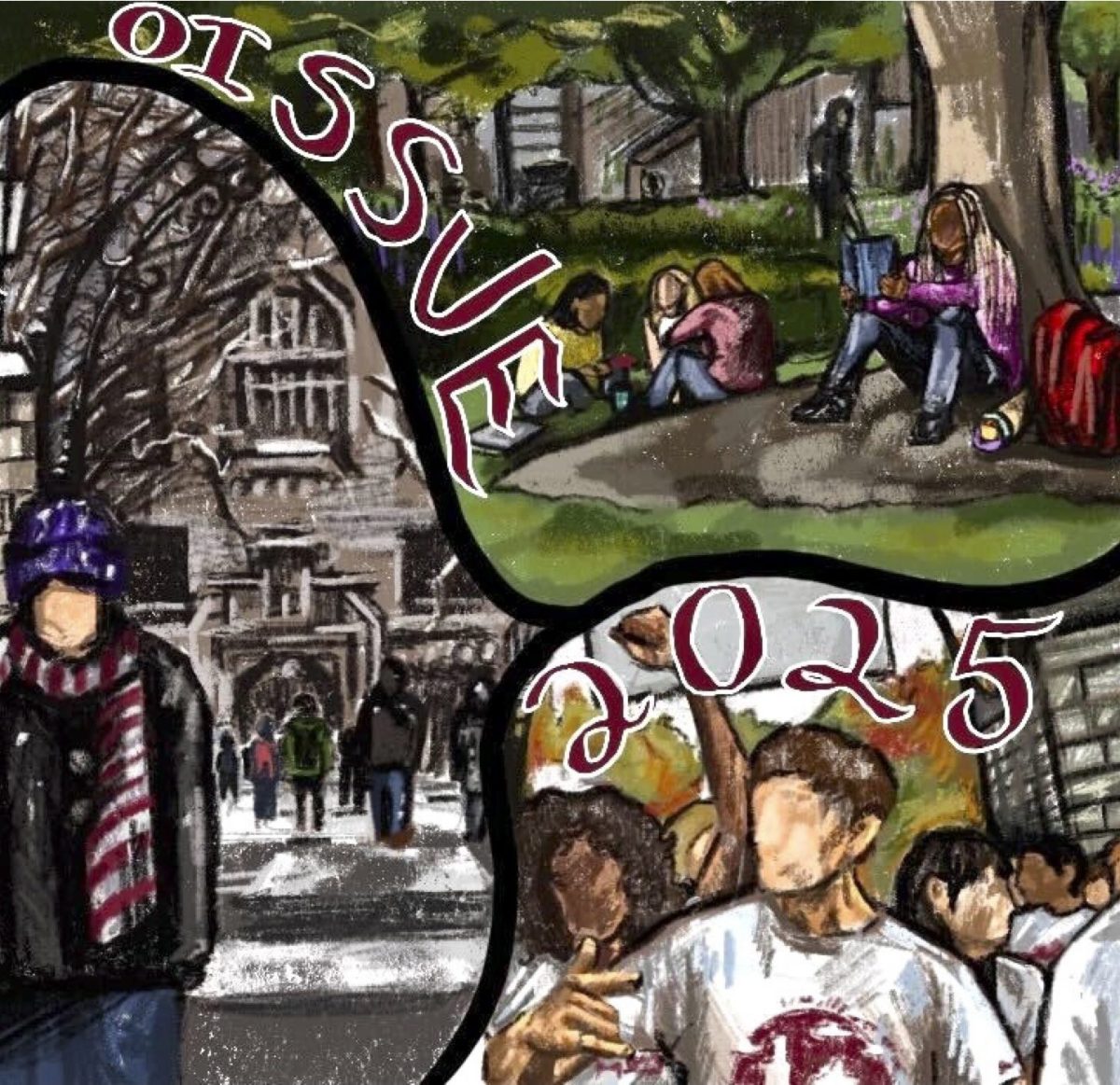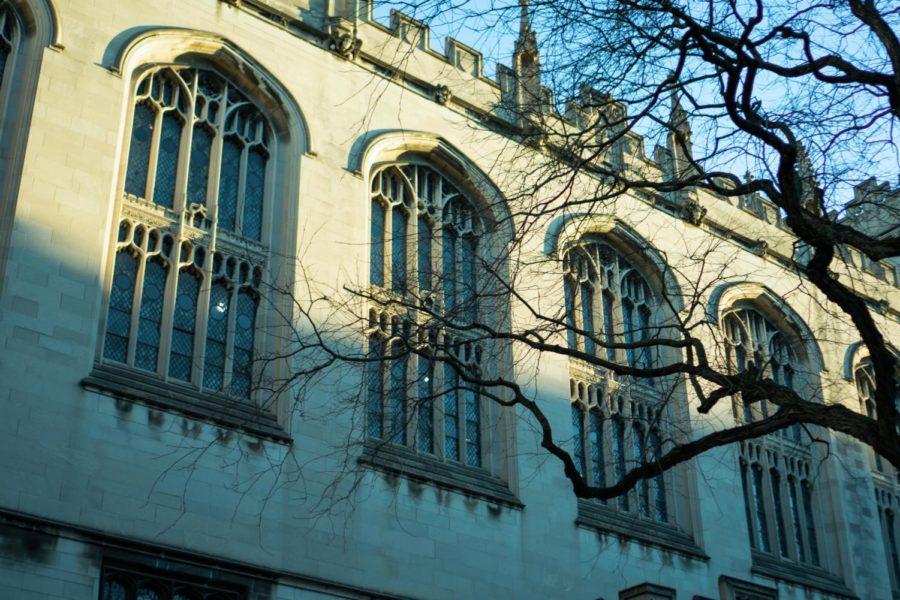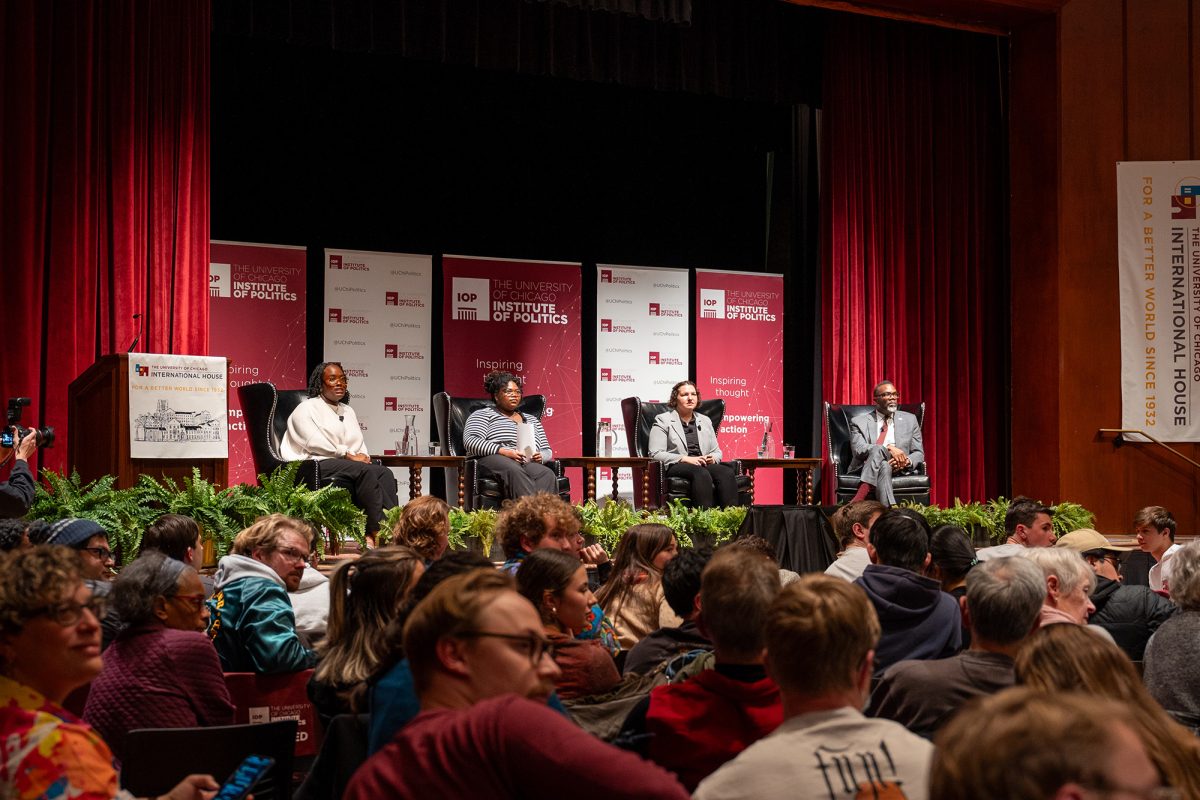In 2007, 15 graduate students founded Graduate Students United (GSU) in response to an administration decision to exclude current graduate students from new funding packages for health insurance and residency fees. The group’s first fliers stated, “Join the fight for fair: funding / teaching / health insurance.”
The first Maroon article about GSU was published in 2008. In it, Jack Lesniewski, a GSU member, said that the goal of the organization was “to build the power of working graduate students. Not to be relying on ad-hoc committees or on a particular administration at particular points but to have a sustained power and presence that democratically represents the interests of working graduate students.”
This goal has remained constant over the years. Stephen Cunniff, a fifth-year philosophy Ph.D. student, has been involved with the GSU since his first week on campus. He currently serves as the chair of the GSU’s Worker Action Committee—the group responsible for planning actions for the union.
“Any major decisions made by the union are made at general membership meetings. We do not undertake any direct action, and we do not make any basic decisions about the union, except at general members meetings,” Cunniff said in an interview with The Maroon.
“This has always been the case and this is always going to remain the case, that all membership participates in the most important decisions we make,” he said.
In 2009, GSU first waded into issues outside the realm of graduate student wellbeing when it released a statement objecting to the creation of the Milton Friedman Institute for Economic Research. The statement raised two points of contention: that “it was instituted without enough campus input and that it endorses Friedman-style free-market politics.” The decision to release the statement was made by a general membership vote with 76 percent of members voting “yes.”
GSU’s current constitution, which was ratified in 2018, established a steering committee which serves as the union’s “executive body.” While the Steering Committee organizes and plans union activities, the membership of the union remains the organization’s “supreme decision-making body.”
Graduate students seem to appreciate the support of the GSU. When the National Labor Relations Board (NLRB) organized a union-recognition vote in 2017, just under 70 percent of graduate student workers voted “yes.”
“Those kinds of percentages aren’t going to be changing significantly,” Cunniff said. “There is and there always has been broad support for the basic aims of the union.”
Despite the overwhelming support for a union among graduate student workers, University administrators have refused to recognize GSU as a union. In a statement from June 2019, then-Provost Daniel Diermeier said in a statement that “the University of Chicago is not opposed to unions” but that “unionization would fundamentally alter the decentralized, faculty-led approach to graduate education that has long been a hallmark of the University of Chicago,” and that it “would not address many of the critical concerns students and faculty have identified, and could put current progress at risk.”
When asked why he thought the University had not recognized GSU, Cunniff said, “I think that UChicago’s identity is not among the most receptive to labor organization, but at the same time, in many ways, they’re following the trend which we’ve seen across private universities. Which is to increasingly consolidate power within the administration. To me, the most significant driving factor to the administration in their opposition to GSU is precisely that, they want to hold all the strings in terms of how resources are distributed across the University.”
GSU’s fight for recognition had seemed at its end in 2017, when the regional office of the NLRB—the federal body which adjudicates unionization issues—sided with UChicago graduate workers and mandated that the University recognize GSU as a union.
The decision by the regional office was based on a 2016 ruling by the national board of NLRB which had ruled that graduate students at Columbia University had the right to unionize and be recognized by their employer. Despite that, the University of Chicago decided to appeal the decision of the regional office to the national board. The reasoning behind such a move was the prospect of a new Republican majority on NLRB, one appointed by former President Trump.
The original 2016 decision had been decided by an NLRB with a Democratic majority, and activists across the country feared that a Republican majority would use the opportunity presented by the University of Chicago’s appeal to overturn the Columbia decision. GSU decided to withdraw their case from NLRB, saying in a blog post that their move would “prevent the University of Chicago from using the Trump Administration to overturn the Columbia precedent.”
Looking back, GSU member Laura Colaneri stands by the decision, saying “the University didn’t have an opportunity to make a case that would overrule the previous Columbia ruling. We protected graduate organizing throughout the United States.”
But the depth of internal support that GSU enjoys has allowed the organization to undertake large scale worker actions for University recognition. In June of 2018, the GSU conducted its first graduate worker walkout, which consisted of hundreds of graduate students striking for 3 days. GSU repeated this a year later, striking for another three days. Laura Colaneri, a fifth-year Romance Languages and Literature Phd student and member of GSU’s communications committee, referred to the strikes as the “high point of a series of escalating actions based upon looking for recognition.”
“One of our lessons from over the years has been that you can’t put all of your eggs in one basket. The government will sometimes support you and sometimes it won’t, and when you know you’re in the right, in terms of your actions, and that you’re trying to improve people’s working conditions on campus, you’ve got to really be exploring all your options. As of right now, we’re not relying on any one strategy in particular. We are in the process of listening to our membership and trying to do things that will have immediate benefits on campus, and won’t be subject to the shifting tides at the federal level,” Colaneri said.
Currently, GSU is engaged in a campaign to have the student services fee (SSF) that graduate students pay either reduced or eliminated. According to the University, the SSF “covers many services dedicated to enhancing the quality of student services and campus activities,” including “services provided by UChicago Student Wellness.”
In a statement on Twitter, the organization said that “hundreds of grad workers at UChicago pledge to refuse payment of the Student Services Fee until the administration meets our demands.” The demands outlined by GSU include a reduction of the SSF to at most $125 and a public disclosure of where the money from the SSF goes.
“The way we can refuse our passive participation from this administration is to withhold our money from them. We’ve been doing this since the beginning of winter quarter and plan to continue this throughout the spring until the University plans to either reduce or eliminate the Student Services Fee,” Cunniff said.
According to Cunniff, as the public health situation in Chicago improves, the GSU is poised to return to in-person activism. “We are definitely looking forward to increasing mass engagement on campus from our students, and we are going to be starting that as soon as possible,” Cunniff said.
Any discussion about the future of graduate students on UChicago’s campus must now consider incoming University President Paul Alivisatos. The University of California system, where Alivisatos has worked for the last 32 years, has had a graduate students’ union since 1998.
While Alivisatos’s individual relationship with Berkeley’s graduate students is unknown, his predecessor at the University of Chicago, President Robert Zimmer, has had a distant relationship with GSU. While former Provost Diermeier made multiple statements about graduate student unionization, Zimmer’s last written statement was an email to the University community from 2016 which addressed NLRB’s Columbia decision. An online record of the email ends with, “We hope all members of our community will take the time to look more deeply into the challenges and potential negative consequences of a union and participate in dialogue around these issues.”
Cunniff himself has reserved judgment of the new administration, saying the turnover is “a new opportunity that may prove to be beneficial, or not,” and characterized GSU’s outlook on the situation as “cautious.”
“What we know, and what’s been shown both in our case and around the country, is that if we want union recognition, we’re going to have to fight for it. The only question is how deep will the administration dig in its heels against this fight,” Cunniff said. “Unionization is not going to come from the initiative of the administration in any case and we expect them to fight against it to some degree, the question is if they will fight it as tooth and nail as the previous administration did.”


















